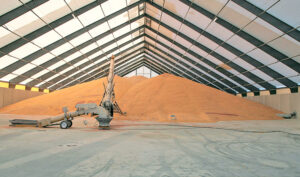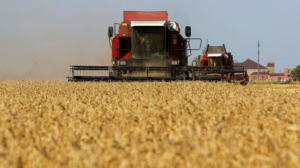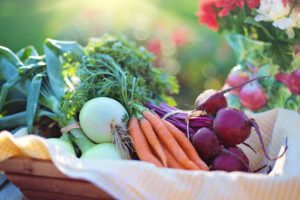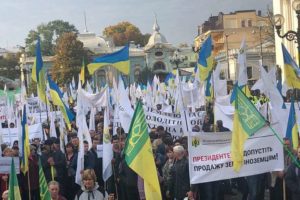
The Food and Agriculture Organization of the United Nations (FAO) has completed the distribution of 615 modular grain storage facilities to small and medium-sized farms in seven frontline areas, the FAO press service reported on Facebook.
The FAO specified that this initiative was implemented with the support of the governments of Canada and Japan in close cooperation with the Ministry of Economy, Environment, and Agriculture. The FAO is convinced that the program contributes to stabilizing the work of farms, preventing post-harvest losses, and ensuring the continuity of agricultural production.
Farmers could apply to participate in the program through the State Agrarian Register (DAR). In 2025, the FAO received 747 applications from producers who cultivate between 200 and 1,000 hectares. After verification, 615 farms were selected to receive modular grain storage facilities. The distribution took place in seven regions: Chernihiv (62), Dnipropetrovsk (116), Kharkiv (124), Kherson (14), Kirovohrad (84), Mykolaiv (128), and Odesa (87).
This initiative is part of a broader Grain Storage Support Strategy that FAO and partners have been implementing since 2022 in response to a critical shortage of storage capacity. During this time, Ukrainian agricultural producers have received a wide range of storage solutions – more than 37,000 grain sleeves, 105 sets of loading and unloading equipment, and a total of 859 modular grain storage facilities. Collectively, this support has enabled farmers across Ukraine to preserve more than 8 million tons of grain and sustain agricultural production in wartime conditions.
Despite significant progress, the lack of storage infrastructure remains a key constraint to the recovery of the agricultural sector, especially in frontline and recently liberated areas, the FAO stressed. As preparations for the 2026 season get underway, the sustainable development of modern and secure grain storage facilities will remain critical to protecting livelihoods and preserving national food production.
“For farmers, the ability to safely store their harvest is not just about grain. It’s about peace of mind, about the confidence that months of hard work will not be lost. These storage facilities give Ukrainian farmers what is especially needed today in times of war: stability and the ability to look to the future with hope. We will continue to support them on this path,” assured Shakhnoza Muminova, Head of the FAO Office in Ukraine.
FAO, together with its partners, plans to provide support to approximately 100 more farmers in early 2026, but the scale of needs far exceeds available resources. Strengthened cooperation and continued active involvement of the international community will be key to enabling farmers to withstand ongoing challenges and contribute to Ukraine’s long-term recovery, the organization believes.

Slovakia and a number of EU countries bordering Ukraine are advocating the creation of a special fund to compensate their farmers for losses caused by the growth in imports of Ukrainian agricultural products. This was announced by Slovak Minister of Agriculture Richard Takáč (Smer-SD) following a meeting of the EU Council on Agriculture in Brussels, according to the TASR news agency.
According to him, the European Commission had previously talked about a 25% increase in quotas for Ukrainian goods, but in reality the figures are much higher — “for honey and sugar, the increase is 400-500%.”
“One problem is quantity, another is product quality and safety. European farmers are required to comply with strict rules on fertilizers, pesticides, and EU standards, while in Ukraine such standards are often absent,” Takáč emphasized.
The minister noted that it was Ukraine’s neighboring countries, which experience the main influx of products, that approached the European Commission with this initiative, while Western European countries often benefit from cheaper imports and do not feel the pressure.
Takach suggested that Slovakia would not be able to “achieve 100% success” in the negotiations, but he is counting on a compromise solution.
“In the new EU financial plan and within the framework of the common agricultural policy, I see an opportunity to create a fund specifically for countries bordering Ukraine. This fund should compensate our farmers and processors for their losses,” he said, adding that Slovakia will seek support through the government and the prime minister.
According to him, agreements on this have already been reached with his Polish counterpart. The issue of increased quotas for Ukrainian agricultural products will also be discussed during the upcoming joint meeting of the governments of Ukraine and Slovakia.
Since 2022, the EU has provided Ukraine with unprecedented access to the common market to support the economy in wartime. However, a number of Eastern European countries — Poland, Hungary, Romania, Slovakia, and Bulgaria — have repeatedly complained about the growing pressure on their producers of grain, sugar, and other crops.

Ukraine has received the third tranche of aid under the ARISE project — over UAH 1 billion, which will be used to support Ukrainian small producers and farms, the Minister of Agrarian Policy and Food said on Telegram.
The minister noted that payments are currently being made in three areas: subsidies per hectare of cultivated land, subsidies for keeping cows, and subsidies for keeping goats and sheep. Payments are being made by the Ukrderzhfond. The Ministry of Agrarian Policy and Food plans to complete them by the end of July.
Producers who are registered in the State Agricultural Register, have submitted their applications on time in accordance with all requirements, did not receive such assistance last year, and are included in the approved lists of recipients are eligible for assistance.

The European Commission has provided EUR 50 million in grants to support Ukrainian farmers for two years, Deputy Director-General for Neighbourhood Policy and Enlargement of the European Commission Katarína Mathernová has said.
She said at the Ukraine 30 Land forum on Monday that the European Commission has allocated EUR 50 million in grants, which will be distributed during two years, to support small farmers to help them acquire land.

Farmers held several protests on roads in various regions of Ukraine on Monday, the police ensured public order and prevented blocking of traffic on roads, the National Police told Interfax-Ukraine.
“Farmers are staging protests. They are not numerous so far. The police are protecting public order and preventing blocking of traffic on roads,” the police said and added that law enforcers explained the protesters that blocking of traffic on roads was illegal.
The National Police added that traffic on roads was only constrained and in general the situation was peaceful.
As reported, protesters blocked the Kyiv-Chop road near the Mali Pidlisky village, Lviv region. Around 100 farmers continuously walked the pedestrian crossing in protest against the government’s intention to cancel a moratorium on sale of farming land. The protesters let vehicles with children pass, however a significant traffic jam appeared on the road.
Earlier, the All-Ukrainian Agrarian Council, which organized the protest, reported that it was planning to stage protests on M05 road near Zhashkiv and E95 road near Uman (Cherkasy region), M19 road in Chortkiv district (Ternopil region), M12 road 10 kilometers to Novoarkhanhelsk (Kirovohrad region), and M14 belt road in Mykolaiv.
The council also said that it was planning to stage protests on E50 road in Prybuzke (Khmelnytsky region), the road near Pysarivka in Vinnytsky district, the road Makhnivka in Koziatynsky district, P36 highway in Shpukiv, Tulchynsky district (Vinnytsia region), M21 highway in Osykove, Berdychivsky district (Zhytomyr region), M05 and E95 highways in Demydove (Odesa region), M03 highway in Maryanivka, Velykobachahansky district, M03 road in Chutove (Poltava region), M19 and T0311 highways in Verbka, Volodymyro-Volynsky district (Volyn region), M06 road in Diadkovychi (Rivne region), H17 road in Mali Midlisky, Zhovkovsky district, Lviv region.